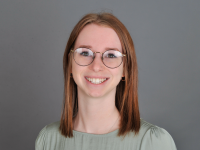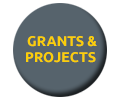
Wellington-based medical researchers have received up to $84,077 in Research For Life’s first funding round for 2025.
Research For Life funds innovative quality research undertaken by researchers in the early stages of their careers who, through their work, will advance the quality of healthcare in the Wellington region and beyond.
This round saw six researchers receive research grants up to the value of $73,296 to undertake innovative medical research and six travel grants, totalling $10,781, to assist local researchers meet the cost of presenting their research findings at medical conferences.
The successful applicants for research grants were:
Kirsty Danielson
Dr Kirsty Danielson received a Research for Life grant of up to $17,700 to undertake research investigating a new type of cancer therapy delivery mechanism. Dr Danielson’s research is exploring the use of a type of cell product called extracellular vesicles that can carry different drug cargo to treat breast cancer. Dr Danielson is Group Leader of the Surgical Cancer Research Group at University of Otago, Wellington.
David Ackerley
Professor David Ackerley and his colleagues, Dr Sarah Messenger and Professor Rachel Codd, received a Research for Life grant of up to $18,000 that will support their development of molecules that will improve surgical outcomes by enabling surgeons to precisely locate tumours within the bodies of patients prior to surgery, and then cause cancerous tissues to be highlighted by fluorescence during surgery in a manner that enables their precise and complete removal.
David Lewis
Dr David Lewis received a Research for Life grant of up to $14,771 to fund research examining the complications of early onset type 2 diabetes in the Wellington Region. Rates of type 2 diabetes (T2DM) are increasing internationally and in Aotearoa New Zealand. A rising concern is its increasing development in adolescents and young adults in whom a small number of studies have shown faster than expected damage to tissues such as the eyes and kidneys as well as a high rates of hypertension, lipid abnormalities and obesity. This study is recruiting young and older adults with T2DM to compare detailed screening including retinal photography, carotid ultrasound and vascular and nerve testing. Measurement of pancreatic insulin production and its efficiency will be estimated along with diabetes severity and control. Better understanding of how young onset diabetes is affecting young New Zealanders will inform patient care and planning of our health system.
Mel McConnell
Dr Melanie McConnell received a Research for Life grant of up to $12,825 to study the metabolism of low-grade brain cancer. These cancers don’t respond well to therapy and most people will pass away 7-10 years from diagnosis. The McConnell lab have designed and built a new model of these brain cancers to try to improve the quality of research, and improve outcomes for people with brain cancer. Here they compare the metabolic changes in their model to what is seen in human cancers, in collaboration with the Galvosas lab in the School of Physical and Chemical Sciences at VUW. These data will help us better understand the biology of the low-grade brain cancers, start to tell us why therapy fails, and will act as a testing board for new therapies. Dr McConnell is an Associate Professor at Te Herenga Waka - Victoria University of Wellington.
Bethany Hawken
Bethany Hawken received a Research for Life grant of up to $5,000 to develop analogues of the fungal natural product (-)-TAN-2483B, an inhibitor of Bruton’s tyrosine kinase (Btk). Aberrant Btk signalling has been associated with a range of B-cell malignancies. In New Zealand, approximately 1000 people are diagnosed with non-Hodgkin lymphoma each year, the majority of which are B-cell lymphomas. Bethany’s research will expand the structure-activity relationship for (-)-TAN-2483B which could inform the development of new Btk inhibitors.
Bethany is a PhD student supervised by AProf Joanne Harvey (School of Chemical and Physical Sciences) and AProf Simon Hinkley (Ferrier Research Institute) at Victoria University of Wellington.
Matthew Ellmers
Matthew Ellmers received a Research for Life grant of up to $5,000 to aid in characterising how natural products derived from sea-sponges alter immune system responses. Diseases of the immune system are becoming increasingly common worldwide, and 1 in 1000 New Zealanders are affected by the autoimmune condition Multiple Sclerosis (MS) which causes neurological and vision issues, fatigue and can lead to paralysis.
Matthew’s research focuses on how natural products impact the cellular production of immune cytokines, the “messengers” of the immune system, that are often implicated in inflammatory and autoimmune diseases. These natural products could potentially be developed as new therapies to treat immune-related diseases, with a specific focus on MS. Matthew is undertaking a master’s degree under the supervision of Professor Anne LaFlamme of the School of Biological Sciences at Victoria University of Wellington.
The successful applicants for travel grants were:
Shivangi Singh
Shivangi Singh is a second-year PhD student at Victoria University of Wellington. She have been awarded a grant of up to $3,990 to attend the ASP 2025 Conference in Michigan, USA. There, she will present her research on natural product discovery by genome mining and heterologous expression of Type II PKS biosynthetic gene clusters in Actinomycetes. Using advanced techniques like genome mining, CAPTURE cloning, heterologous expression, she aims to activate silent gene clusters that produce bioactive compounds. Her research focuses on identifying new Type II PKS as potential sources for developing novel antimicrobial and anticancer drugs.
Lucy Picard
Lucy Picard, a PhD student at the Department of Pathology and Molecular Medicine at the University of Otago, Wellington, has received a travel grant of up to $800. She is travelling to London to present her work on developing a new tool to advance precision medicine at the annual London Calling conference hosted by Oxford Nanopore Technologies, who developed the key sequencing technology used in her PhD research. Her work aims to develop easy tools to assist clinicians in making targeted treatment decisions based on disease profiles, particularly in solid cancer tumours, reducing the need for the use of broad spectrum medications with unnecessary side effects.
Emily Paterson (pictured above)
Emily Paterson received a travel grant of up to $2,191 to present at the World Congress on Endometriosis in Sydney in May 2025. She presented work from her PhD investigating cervicovaginal fluid and extracellular vesicles as diagnostic biomarkers of endometriosis. Emily is an Assistant Research Fellow in the Department of Surgery and Anaesthesia at the University of Otago, Wellington.
Dr Katharina Robichon
Dr Katharina Robichon has received a travel grant of up to $1,300. She is attending Queenstown Research Week and the ASI-NZ branch satellite meeting. Her research focuses on multiple sclerosis, specifically exploring why some treatments work for certain individuals and not others. She has recently completed a clinical trial analyzing immune changes related to treatment success or failure and is looking forward to sharing this exciting new data. As a newly appointed Lecturer at the University of Otago, Wellington, this conference offers a valuable chance to build networks, and advance her independent, yet collaborative research, particularly within New Zealand’s neuroimmunology community for both scientific and personal growth.
Nicole Waldron
Nicole Waldron, a Research Associate at Victoria University of Wellington, has been awarded a Research for Life Travel Grant of up to $1,500 to present her research at the Society for the Study of Reproduction Meeting in Washington, DC, USA, in July 2025. Her work focuses on developing a murine model of triploid embryos to enhance our understanding of aneuploidy and early embryonic development, with potential implications for improving IVF outcomes.
Kaitlin Buick
Kaitlin Buick, a PhD student at Te Herenga Waka, Victoria University of Wellington, and the Malaghan Institute of Medical Research, received a travel grant of up to $1,000 to attend the Australian and New Zealand Society for Immunology (ASI) Advanced Immunology School in Sydney this year. Her PhD research involves understanding how the immune system drives a protective immune response following mRNA vaccination and how to optimize this to create improved vaccines for vulnerable populations in New Zealand and the Pacific.



